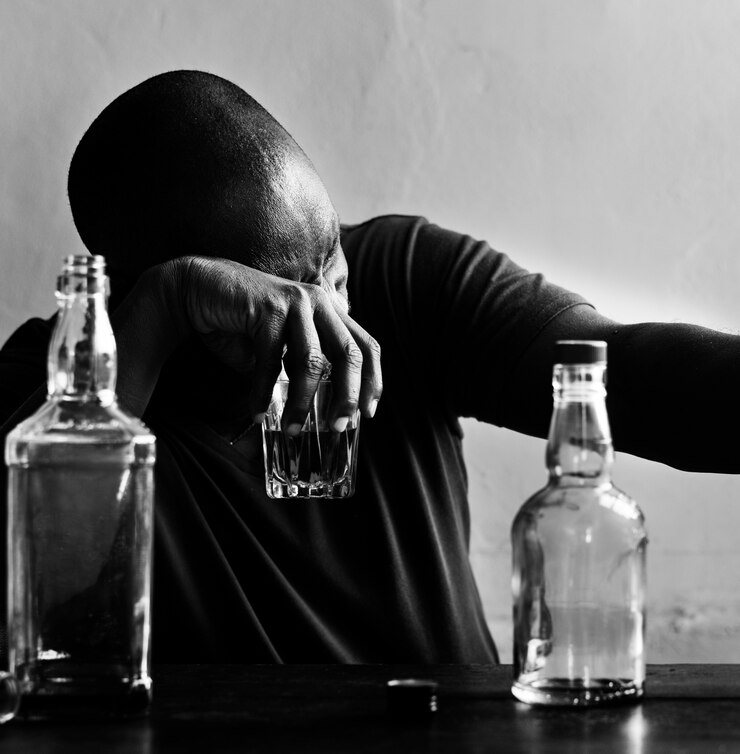The Journey To Sobriety: Understanding Addiction Treatment And Recovery
Table of Contents
Addiction is a complex and pervasive issue that affects millions of individuals worldwide. Whether it be substance abuse or behavioral addictions, the impact on physical health, mental well-being, and interpersonal relationships can be profound. Fortunately, addiction treatment and recovery have evolved significantly over the years, offering hope and support to those grappling with the challenges of addiction.
This article delves into the various aspects of addiction treatment, exploring the journey to recovery and the strategies that individuals can employ to regain control of their lives.
Understanding Addiction
Before delving into treatment and recovery, it’s crucial to understand addiction itself. Addiction is a chronic, relapsing disorder characterized by compulsive substance use or behavior despite harmful consequences.
It affects the brain’s reward system, leading to cravings and a loss of control over the substance or behavior in question. The substances involved can range from alcohol and illicit drugs to prescription medications, while behavioral addictions may include activities such as gambling, gaming, or compulsive eating.

The Stages Of Treatment
Addiction treatment typically involves a multi-faceted approach, often tailored to the individual’s specific needs and the nature of their addiction. The treatment process generally unfolds in several stages:
- Assessment and Evaluation: The first step in addiction treatment is a comprehensive assessment to determine the severity of the addiction, any co-occurring mental health issues, and the individual’s overall health. This evaluation helps create a personalized treatment plan.
- Detoxification: For many individuals, especially those struggling with substance abuse, detoxification is a necessary initial step. This process involves removing the addictive substance from the body, often leading to withdrawal symptoms. Medical supervision is crucial during detox to manage these symptoms safely.
- Inpatient or Outpatient Treatment: Depending on the severity of the addiction, individuals may undergo either inpatient or outpatient treatment. Inpatient programs provide a structured and immersive environment, while outpatient programs allow individuals to continue with their daily lives while attending therapy sessions.
- Therapy and Counseling: Behavioral therapies, including cognitive-behavioral therapy (CBT), motivational enhancement therapy (MET), and contingency management, are integral components of addiction treatment. These therapies help individuals understand the root causes of their addiction, develop coping mechanisms, and build resilience against relapse.
- Medication-Assisted Treatment (MAT): In some cases, medications may be prescribed to assist in the treatment process. For example, medications like methadone, buprenorphine, or naltrexone can be used to manage opioid addiction, while medications like acamprosate or disulfiram may be employed for alcohol dependence.
- Aftercare and Relapse Prevention: Recovery doesn’t end with the completion of a formal treatment program. Aftercare is a crucial component, involving ongoing support, counseling, and resources to help individuals maintain their sobriety. Relapse prevention strategies are also emphasized, teaching individuals to identify triggers and develop coping mechanisms to avoid returning to addictive behaviors.
The Role Of Support Systems
Support from family, friends, and support groups plays a pivotal role in the recovery journey. The understanding and encouragement of loved ones can provide the emotional strength needed to overcome the challenges of addiction.
Support groups, such as Alcoholics Anonymous (AA) or Narcotics Anonymous (NA), offer a sense of community and shared experience, fostering a connection that is vital for sustained recovery.
Holistic Approaches To Recovery
Recognizing that addiction is a complex interplay of physical, psychological, and social factors, holistic approaches to recovery have gained prominence.
These approaches consider the whole person, addressing not only the addiction but also underlying issues that may contribute to it. Holistic treatments may include mindfulness practices, yoga, nutritional counseling, and alternative therapies like acupuncture or art therapy.
Challenges In The Recovery Process
Recovery is not a linear path, and individuals may face numerous challenges along the way. Triggers, stressors, and co-occurring mental health issues can pose significant obstacles.
It’s essential for individuals in recovery to develop a strong support network, engage in ongoing therapy, and be vigilant about their mental and physical well-being.
Conclusion
Addiction treatment and recovery are dynamic processes that require commitment, patience, and a holistic approach. With advancements in understanding the neuroscience of addiction and the development of evidence-based treatments, there is hope for individuals seeking to overcome the grip of addiction.
By embracing a comprehensive and individualized approach to treatment, addressing underlying issues, and fostering a strong support system, individuals can embark on a transformative journey toward sustained recovery and a healthier, more fulfilling life.


